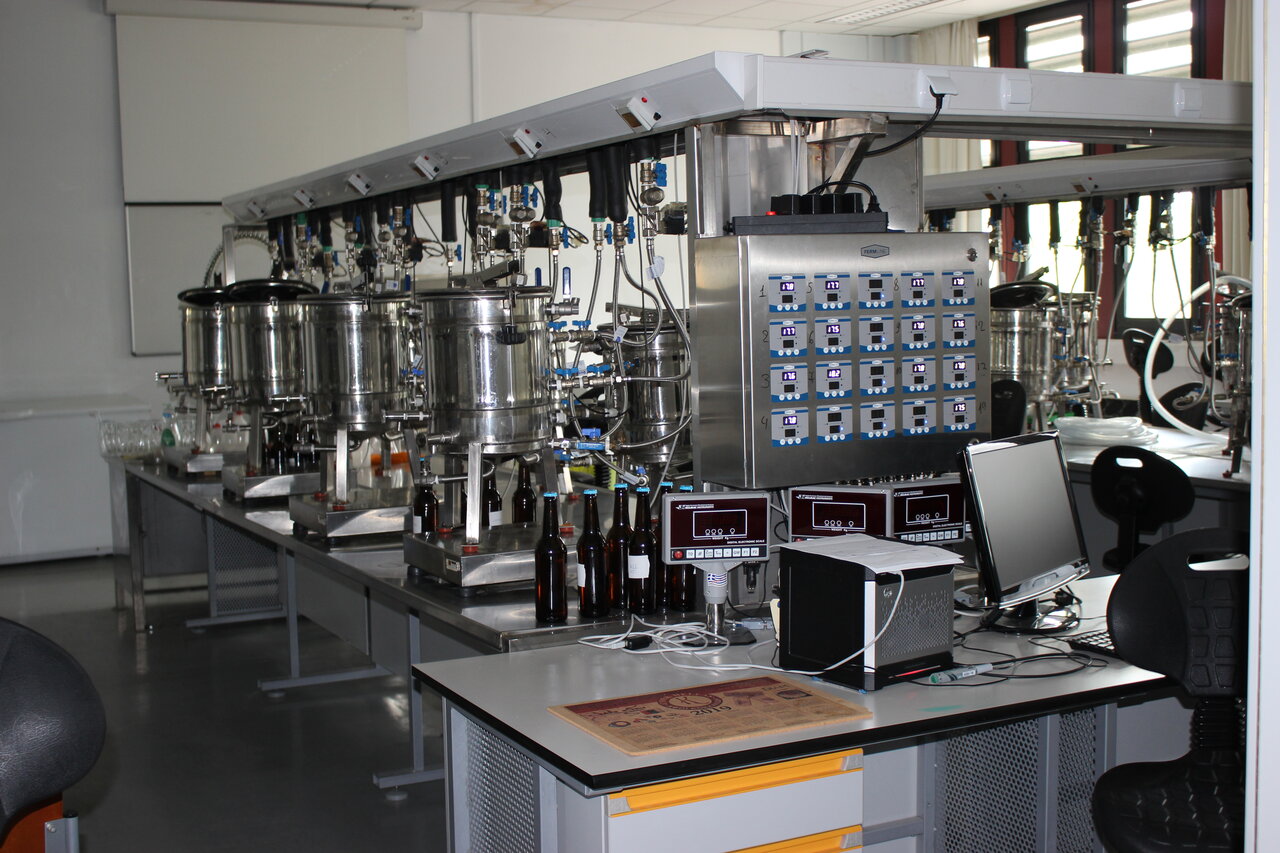Article 1. General provisions
The academic year begins on September 1 of each year and ends on August 31 of the following year. Studying at the department of ABO lasts five years and is completed in 10 semesters of 13 weeks each. By decision of the Senate, following a proposal by the Department's Assembly, it is allowed to extend the duration of the semester by a maximum of two weeks, in order to complete the required minimum number of teaching weeks. Consequently the course is considered not taught for less than 13 weeks of teaching. Interruption of the educational project and the general operation of a University, beyond what is provided for in the current legislation, is possible by decision of the Senate and only in exceptional cases.
Each course has a number of ECTS credits. Students are examined during the period January-February in the courses of the winter semesters, in the period of June in the courses of the spring semesters and in the period of September they are examined in the courses of both the winter and spring semesters. Postgraduate students (beyond the 11th semester of studies) have the right to be examined in all subjects in all three examination periods.
The maximum duration of study in undergraduate studies cannot exceed the minimum number of semesters required to receive the degree, according to the indicative study program of the Department, increased by 100%, i.e. 10 years. Students have the right to suspend, with a written request to the Department Secretariat, their studies for as many semesters, consecutive or not, as they wish, and in any case not more than the minimum number of semesters required to obtain a degree according to the indicative program studies, i.e. no more than 10 semesters. These semesters will not count towards the above maximum duration of study. Students who suspend their studies in accordance with the above do not have student status for the entire period of suspension. For the loss of student status, a relevant certificate is issued by the Department's Secretariat, which also certifies the courses in which the student has been successfully examined. Every student, in the event of his/her withdrawal and graduation from the Department, must submit the following documents: (a) student ticket (pass), (b) health booklet, (c) certificate of non-charge for books from the library.
The student completes his studies and receives a degree when he succeeds in the prescribed courses and accumulates the required number of courses and credits. Specifically, to obtain the department of ABO degree, the following are required: a) Successful examination in 51 compulsory courses (238 ECTS), b) Successful examination in optional courses (at least 16 ECTS), c) Completion of an internship and d) Successful completion of an undergraduate thesis -UDT- (30 ECTS).
The student who has been successfully examined in more elective courses, than those provided for obtaining a degree, can choose with his Responsible Declaration to the Secretariat those that he wants to be counted. The additional elective courses, which do not count towards the degree, are listed in the detailed score and the Diploma Supplement.
Article 2. Declaration of courses
At the beginning of each semester and at a regular deadline, within two weeks of the start of the courses of the respective semester, each student must make a declaration of courses. By declaring the courses, the student acquires the right to:
1) attend the theoretical and laboratory part of the courses he declared,
2) to receive the teaching aids available for these courses,
3) to participate in the exams of the courses he declared.
The above statement is made electronically by the student concerned. After the deadline, no declarations will be accepted, nor applications to change a declaration that has been filed on time. Any change must be approved by the Departmental Assembly. Each course consists of theoretical and laboratory training. In some courses laboratory training is replaced by exercises and/or tutorials. The workshops, or exercises in the various courses are compulsory during the course. If the laboratory training or the exercises are prerequisites for the theoretical teaching of a course, then prior consultation between the student and the teacher is required.
When registering for courses, the following rules apply:
1. Course registration is equivalent to semester registration.
2. Students can declare the courses offered in the semester they are studying and up to 3 due courses from previous years (n+3) and a total of 30 teaching units.
3. Students from the 7th semester onwards can register for more courses, up to a total of 50 teaching units.
4. Undergraduate students (≥ 11th semester) can declare due courses from past years of winter and spring semesters without restrictions.
5. Students can register courses of equal or shorter semester, not longer.
Article 3. Scoring
The performance of the students in each course is graded on a scale of "zero" - "ten" (0 - 10), with a minimum grade of success of five (5) and an excellent grade of ten (10) with accuracy up to one decimal place, and is filed in Secretariat of the Department by the lecturer, after it has been passed electronically through the web-class platform. The student's grade in each course is determined by the teacher, who is obliged to organize, at his discretion, written or oral exams or to rely on topics or laboratory exercises.
The degree grade is calculated as follows: The grade of each course is multiplied by the number of ECTS of the course and the sum of all individual products is divided by the sum of ECTS of all courses. The Bachelor Thesis is counted as courses with the corresponding ECTS. More specifically, we have that:
Degree Grade = Σ (Course Grade x Course ECTS) / Σ (Course ECTS)
The characterization of students' performance, depending on the final grade to the nearest two decimal places that they achieve in their degree, is as follows:
Welcome: 5 to 6.49
Very well: 6.5 to 8.49
Excellent: 8.5 to 10
Article 4. Undergraduate diploma thesis (UDT)
In order to receive the department of ABO degree, it is mandatory to prepare an undergraduate thesis (UDT), which is of an experimental or bibliographic nature.
Regarding the conduct of the UDT, the following apply:
1) Each faculty member gives a list of proposed UDT subjects to the secretariat before the start of the 5th semester,
2) For each proposed topic, the "thematic field" is given, which constitutes a general title, which during the preparation of the UDT will be finalized as an exact title in Greek and English,
3) For each proposed topic, the type of topic (Experimental – Bibliographic) is given. The experimental includes elements of collecting primary data through experimental research, while the bibliographic is a review of the literature,
4) Each proposed topic is supervised by a 3-member advisory-examination committee (one supervisor and two examiners),
5) For each proposed topic, the maximum number of students who can choose it is given. The experimental UDT can be either individual or group with a maximum number of 4 students,
6) The bibliographic UDT can be either individual or group with a maximum number of 2 students.
At the beginning of the 5th semester, the proposed topics of the UDT will be posted for a period of two weeks on the notice board and on the website of the Department, so that the students have time to process the topics and arrive at their choice. On specific and exclusive dates, the students of the 5th semester will be informed by the Secretariat with an announcement that they can come to declare the subject of their choice.
- Once a title is selected by a student (or those required by the subject), that UDT will not be eligible for anyone else and the title will be withdrawn. Subsequent students will be required to choose from the remaining subjects,
- The students of the 5th semester must choose a subject, otherwise the Department Assembly will obligatorily assign them one of the remaining proposed subjects,
- The UDT is considered complete after the agreement of the 3-member examination committee (supervisor and examiners). Then, the Supervisor informs the Secretariat that the UDT is ready for public presentation,
- The public presentations of all UDT are mandatory and are held on a specific day, 3 times/year, on dates that will be posted and fall in periods after the end of each examination and in any case well before the swearing-in dates determined by the IHU,
- Each presentation lasts 15-20 minutes and is followed by questions-discussion with the examination committee. After the presentation, the students deliver the final UDT in printed and electronic (CD) format in 3 copies (Secretariat and 3-member examination committee),
- The grading of the UDT is done by the 3 members of the examination committee and is the average of the three graders. Each student receives an individual grading for his/her performance, regardless of whether the UDT subject was a group one. The grading document is signed by the 3-member examining committee and delivered to the Secretariat,
- Formatting and text structure instructions are specific and are available on the Department's website.
A faculty member, or a Researcher of a recognized research center, or a member of the Department's faculty with a phD, or a contractual teacher of the Department is designated as a supervisor. The thesis is prepared in the laboratories of the department of ABO, and/or in public research/academic institutions. In the event that the degree theses are prepared outside the Department, the members of the three-member Advisory Committee must be designated as a supervising faculty member of the Department.
The thesis cannot be presented within 3 months of submitting the thesis application.
Upon completion of the writing of the Master's Thesis, the student must check, in collaboration with the supervising professor, with special software the percentage of verbatim copying of the text submitted and include the reference report of the software when submitting the Master's Thesis. The percentage of exact text copying may not exceed 30% in total. This percentage does not include bibliographic references.
Article 5. Disciplinary penalties
In case of copying, the penalties are imposed by the Department Assembly and are of an administrative nature, i.e. the student is excluded from the exams for the period of the penalty. The student retains the right to participate in the examination of other courses, as long as he meets the conditions described in the current study regulations of the Department, as well as the syllabus of the respective course. In case the initial decision-penalty is appealed to the competent higher bodies of the University, the decision of the competent bodies of the University shall apply.
The Department Secretariat is responsible for maintaining the record and applying the penalties.
Article 6. Practice training
The Internship (Practice Training, PT) of ABO Students is implemented within the framework of the Operational Program "Education and Lifelong Learning" (ESPA 2014-2020) and is institutionalized in the Department where the following apply:
- It is recognized as an approved student activity linked to the Study Program,
- It is mandatory for obtaining the degree and is listed in the Diploma Supplement.
- Its duration is four months and it takes place during the summer months (July and August). Students are required to carry out the PT in institutions, both in the public and private sector,
- It is supervised by the Faculty members (Supervisors) of the Department, who are appointed by the Supervising Faculty member (SFM) and approved by the Assembly of the Department, for each academic year,
- Supervisors are in charge of monitoring and guiding student interns throughout the PA, as well as evaluating the student and the institution.
The Internship Program (PT) of ABO aims at the internship of all its students in companies and organizations of the private or public sector in order to:
- apply the knowledge they have acquired through their studies and develop the skills they will be asked to demonstrate in their first work environment,
- to create a communication channel between ABO and businesses, in order to facilitate their cooperation.
Scientifically, the Department's PT is the elected President of the Department.
Useful instructions and forms necessary for the process of starting and completing the PT are specific and are available on the Department's website.







